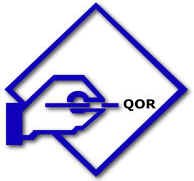By M. J. Farah
On Friday, October 23, 2009, President Obama and the governor of Massachusetts Deval Patrick appeared jointly at an event in Boston, MA. The event was meant to raise funds for Governor Patrick’s reelection bid in 2010. I was excited to attend. During lunch, I sat with some high-profile attorneys and other important people. As people were socializing and exchanging business cards, they could not get beyond my national identity as Somali. Of course, everyone seemed to have many questions about piracy activities in Somalia. Piracy activities are the worst public relations for Somalis who are living abroad.
While others were proudly boosting their accomplishments and describing their achievements to each other, I was busy explaining piracy to them. As my turn to introduce myself to the group approached, I had very little time showcasing my credentials, and more time discussing issues related to piracy.
A conversation began in the following manner, “Hello, how are you? My name is Cathy and you?” I said, “It is a pleasure to meet you, Cathy. My name is Mohamed” Cathy asked “Where are you from?” I answered “I am originally from Somalia, in east Africa. But, I have lived here most of my life.” Cathy said, “I have never understood the piracy issue; could you explain it to me?” Whereas others’ conversations went, “Hello, my name is Diane and you?” Another person replied, “Hello, good to meet you, Diane. My name is David” Diane asked “What do you do, David?” David answered “I recently graduated from Suffolk Law and I now work for Senator Kerry.”
Many important people were there to see the President as well as to network with one another. Likewise, I was not only there to see President Obama, but also to network with people. As people quizzed me on piracy issues, my initial plan to establish professional contacts went out of the window. It bothered me a bit, but I had to explain what I understood about the civil unrest in Somalia and its newly added piracy activities.
Upon reflection on this experience, I went back and tried to understand piracy issue in Somalia. Piracy is Somalia’s new addition to the list of nightmares resulting from the civil unrest of the last 20 years.
Imagine you are 19 years old, a male, born and reared in the coastal city of Eyl, Somalia. You only know violence as a means to accomplish something or to settle disputes. There are no police, no schools, and no visible authority all. Yet, you are in the process of discovering your own purpose in this life. Perhaps you want to establish a family of your own, and your family’s survival depends upon fishing from the coastline city of Eyl, northern Somalia. The coastline is threatened by foreign ships and you, along with other people in the town, are frustrated.
Many of the elders, in the ancient town of Eyl, are talking about how the illegal fishing in the coastline is hurting your families’ survival. There are shortages of fishery combined with various reports that European and Asian companies are dumping toxic waste, including nuclear waste, in the Somalia coastline. This is your reality.
In fact, a resident, who chose to remain anonymous, from Eyl told me that the ocean resembles another city at night because of the lights glowing from the numerous ships illegally fishing there.
Eyl locals showed signs of frustration over the illegal foreign companies depleting their marine resources. As a result, young Somalis started to entertain the idea of organizing themselves and found a meaningful purpose of serving their people by defending their coastal waters against illegal fishers. With the elders’ blessing, Somali piracy as we know it was born. It started with a decent purpose but not an organized one. Now, it has metastasized into public nightmares for Somalis as well as for the international community.
It is now out of control, as piracy activities have attracted international criminals and is largely driven by monetary interests. At this point, it can only be contained by an effective Somali government, which is not yet there.
I constantly have to explain piracy to people so much, that it even became part of opening remarks for a mini speech I made at a Suffolk University class run by Oiste called Initiative for Diversity in Civic Leadership. I told the audience that I am from Somalia, known as the land of piracy. Of course, this remark woke up the crowd with loud laughter. Since I am unable to quell or change the trajectory of the piracy activities in Somali, then I chose to have some fun with it. My experience at the Obama/Patrick event demonstrated that for Somali expatriates, piracy has been the worse way to introduce ourselves to the world. Despite this, I am optimistic that this piracy nightmare and the civil unrest in Somalia will soon be things of the past.
M. J. Farah
sahan93@gmail.com
M. J. Farah is an independent analyst, lecturer, writer, aspiring entrepreneur, and he currently reside in the Unites States.





































comment closed after 30 days / Jawaabaha waa la xiray ama waa la joojiyay wixii ka badan 30 cisho.